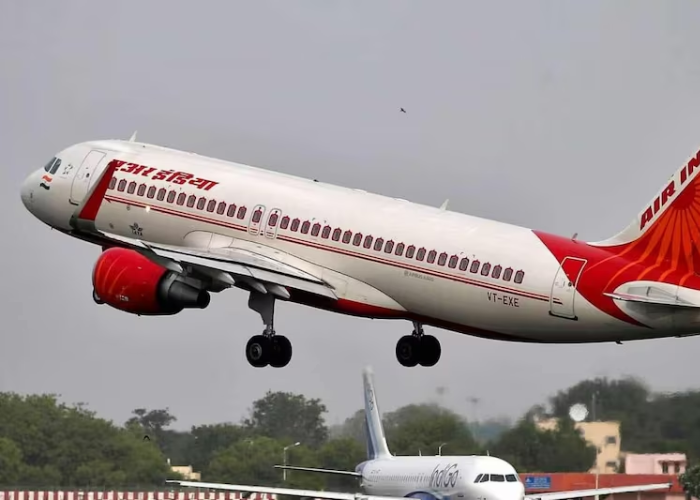
The Tata Group-owned Airline, Vistara is poised to acquire 30 aircraft over the course of the next 15 months. This will enable Vistara to expand its domestic and international routes and expand its customer base.
Overview of the Tata Group
The Tata Group is a multinational conglomerate based in India, founded in 1868 and currently owned by Tata Sons. It is one of the largest and most respected companies in the country, with a presence in over 100 countries and covering a wide range of industries, such as manufacturing, energy, healthcare, retail, hospitality and telecommunications. The Tata Group has had a long history of successful acquisitions and investments, and has made the news recently with its decision to acquire a majority stake in AirAsia India, an airline owned by the Tata Group. This acquisition has opened up a range of opportunities for the Tata Group, as the airline will be inducting 30 aircraft into its fleet in the next 15 months. This move will expand the Tata Group’s presence in the aviation industry, and will enable the company to provide a wider range of services to its customers. This move is a testament to the Tata Group’s commitment to providing the best possible products and services to its customers, and is a sign of the company’s continued success in the future.
Overview of Airline Business
The Tata Group, one of India’s leading conglomerates, has announced a major expansion of its airline business by inducting 30 aircraft in the next 15 months. The company, which already operates a fleet of eight Airbus A320s, will add 10 more of the same aircraft to its fleet in the coming months. The remaining 20 aircraft will be inducted over the course of the next 12 months. This expansion will bring the total number of aircraft operated by the Tata Group to 38, making it one of the largest airline operators in India. The company has stated that the new aircraft will be used to meet the growing demand for domestic and international flights. The increased capacity will also help the company to expand its operations to other destinations in the region. This move is part of the company’s larger strategy to expand its presence in the aviation industry and make it an important player in the global aviation market.
New Fleet Expansion Plan
The Tata Group owned airline, Vistara, recently announced a major expansion plan that will see the carrier induct 30 new aircraft into its fleet over the next 15 months. This is a significant increase in the size of the airline’s fleet and will help the carrier to rapidly expand its domestic and international operations. The new aircraft primarily comprise of Airbus A320neo and Boeing 787-9 Dreamliners.
The addition of new aircraft will not only help Vistara meet the rising demand for air travel in India, but also allow the airline to expand to new routes and destinations. This is an important step for the airline and will help it to become a major player in the Indian aviation industry. The addition of new aircraft will also bring a host of new features to the airline, such as improved in-flight entertainment, upgraded cabins, and better customer service.
The new fleet expansion plan is part of Vistara’s long-term strategy to become a leading global airline. The airline has already made inroads in the Indian market and is now looking to expand its presence in the international market. The addition of new aircraft will allow Vistara to serve more passengers, while also providing them with a better travel experience. The airline is also looking to leverage the latest technologies to provide a seamless travel experience to its customers.
Benefits and Opportunities of the Expansion
The expansion of the Tata Group-owned airline will bring immense benefits and opportunities for the airline, its customers, and the economy. On one hand, it will create jobs and boost the Indian economy by increasing the number of aircrafts and flights. Additionally, the airline will be able to offer more flights to a wider range of destinations, as well as more competitive fares, making it an attractive option for customers. Moreover, the airline will be able to capitalize on the growing demand for air travel in India, with more people traveling by air now than ever before. Furthermore, the airline will benefit from increased profits due to the increased number of passengers, as well as cost savings from the added efficiency of having more aircrafts. Finally, the induction of 30 aircrafts will enable the airline to become a more competitive player in the global aviation industry, allowing it to compete on a more even playing field with the likes of other international airlines. All in all, the induction of 30 aircrafts in the next 15 months by the Tata Group-owned airline will bring numerous benefits and opportunities for all involved.
Challenges Expected with the Expansion
The recent announcement of the Tata Group-owned airline inducting thirty aircraft in the next fifteen months has created a buzz among industry experts. With this large-scale expansion, the airline will certainly face its fair share of challenges. These challenges can be categorized into two main areas, namely, capital and operational.
In terms of capital, the airline will need to secure large amounts of funding to finance this growth. This could be in the form of loans, debt financing, or equity investments. This can be difficult to secure in the current market conditions and could impede the airline’s growth.
Operationally, the airline must ensure that it has the resources and personnel to manage the increased demand. This includes recruiting and training new staff, securing additional aircraft and spare parts, as well as ensuring the airline has adequate maintenance and repair services. The airline must also ensure that its customer service and infrastructure are up to the task of managing the increased passenger loads.
The Tata Group-owned airline has embarked on a bold and ambitious growth plan that could potentially yield significant rewards. However, it is essential that the airline is prepared to face the challenges that go along with such an endeavor. By taking the time to properly plan and prepare for these challenges, the airline can ensure that it is ready to make the most of the opportunity.
Conclusion
The induction of 30 aircraft by the Tata Group owned airline over the next 15 months is a noteworthy development. It will boost the airline’s capacity to meet the growing demand of air travel in India and will also create new job opportunities in the aviation industry. This move by the airline will make air travel more accessible to the public and will be beneficial for the economy in the long-term.




